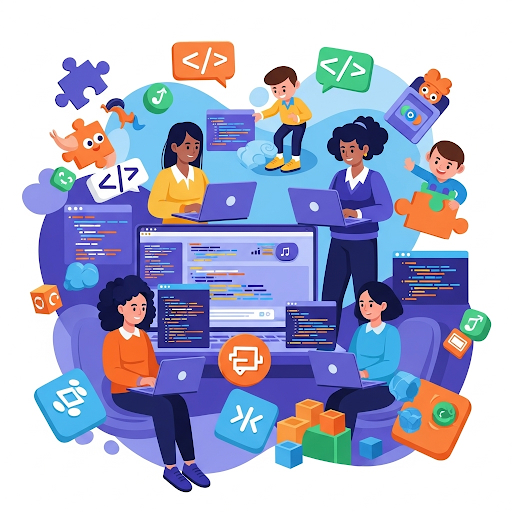Social media plays an important role in building professional networks within the tech industry, and some aspiring programmers consider ordering followers Instagram to establish their presence and connect with the developer community more effectively. While ordering followers Instagram can provide initial social proof and potentially help with networking opportunities, this approach works best when combined with genuine skill development and authentic content creation that demonstrates real technical knowledge.
Many successful developers have found that social media growth happens naturally when they share their learning journey, coding projects, and problem-solving experiences with engaged audiences who appreciate authentic content. The most effective approach combines strategic social media presence with comprehensive skill development through interactive programming education that builds both technical competency and genuine expertise. This balanced strategy ensures that social media presence accurately reflects actual programming abilities while creating meaningful connections within the tech community.
Building Strong Learning Foundations
Programming education thrives when newcomers experience immediate satisfaction from their coding efforts through interactive projects and visible results. Modern teaching approaches emphasize hands-on experimentation and creative problem-solving from day one, helping students build confidence while developing practical skills that translate directly to real-world applications.
Visual programming languages and block-based coding environments provide excellent starting points for beginners, allowing them to focus on logic and problem-solving concepts while gradually building familiarity with programming principles. These tools create immediate visual feedback that reinforces learning while celebrating successful project completion.
Game-Based Learning Approaches
Educational games transform programming concepts into enjoyable challenges with clear objectives and meaningful rewards systems. Students learn loops, conditionals, and functions through engaging puzzle-solving activities that combine entertainment with effective learning, making complex concepts more accessible and memorable.
Modern coding bootcamps and online platforms successfully incorporate gamification elements such as:
- Progress tracking
- Achievement badges
- Friendly leaderboards
These gamification elements are useful in maintaining engagement throughout the learning journey. These systems provide continuous motivation while celebrating incremental progress and important skill development milestones.
Project-Based Discovery Methods
Building practical applications from early learning stages helps students see immediate applications for their developing skills.
Projects like calculators, simple games, or personal websites effectively demonstrate how programming concepts translate into functional software that addresses real problems and creates value.
Collaborative coding projects introduce beneficial social elements that enhance learning. If you wish to understand essential teamwork and communication skills, this concept is extremely useful. Many professional and experienced programmers are using these skills regularly in workplace environments. These group experiences build both technical and interpersonal competencies simultaneously.
Interactive Tools and Platforms
Modern coding education platforms provide instant feedback through integrated development environments that highlight errors and suggest improvements in real-time. This immediate response system prevents frustration while reinforcing correct programming practices through positive reinforcement loops.
Live coding demonstrations and interactive tutorials allow students to follow along with instructors while experimenting with variations and modifications. This hands-on approach accommodates different learning styles while encouraging creative exploration and personal experimentation.
Building Practical Skills through Real Projects

Portfolio development should begin immediately, with students creating simple applications that demonstrate their growing abilities to potential employers or clients. Even basic projects showcase problem-solving skills and technical competency better than theoretical knowledge alone.
Open-source contribution opportunities provide real-world experience while connecting newcomers with experienced developers who can offer guidance and mentorship. These collaborations expose beginners to professional development practices and industry standards through direct participation.
